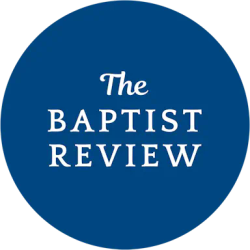I love the Southern Baptist Convention because it tethers missional passion to confessional fidelity. Confessional fidelity is why I am in favor of the Law Amendment. Cultural pressures to compromise God’s Word have always been with us. The issue today is female pastors, but there will be some new issue in the next decade. God’s charge to his church remains the same: don’t be blown about by every wind of doctrine but stand firm on the solid rock. We need a strong, conviction-led convention that will remain solid for the long haul.
In our day, confusion about gender and gender roles is at an all-time high. Feminism is now the air we breathe and has crept into too many of our churches. We have a unique and timely opportunity as a convention to speak a clear and needed word to a confused world. We have a unique and timely opportunity to prevent future theological drift.
Many Christians are confused about gender and a lack of clarity on this issue as a convention will only make matters worse. The Law Amendment brings needed clarity in a new cultural context, as we have done with racism and sexual abuse. Twenty-four years ago, female pastors were not an issue. It is today.
I support ratification of the Law Amendment for four main reasons:
1. Scripture is clear.
There has been virtually no discussion of female pastors in the history of the church until the onset of the feminist movement. In the New Testament, and now in the Baptist Faith & Message 2000, the titles pastor/overseer/elder are interchangeable (see Titus 1:5-7, Acts 20:17, 20:28, 1 Pet 5:1-2). Biblically, and now confessionally, there is no pastor who is not an overseer who is not an elder. This is how it should be.
The argument that a female pastor can legitimately serve under male elders misses the mark biblically and only produces confusion. The amendment brings helpful clarity. A church is in friendly cooperation when it “affirms, appoints, or employs only men as any kind of pastor or elder as qualified by Scripture.” God’s clear will for his church is to be led by a plurality of spiritually-qualified male elders/pastors/overseers.
First Timothy 2:11-12 says, “Let a woman learn quietly with all submissiveness. I do not permit a woman to teach or to exercise authority over a man; rather, she is to remain quiet.” In so many ways, this is the key passage. As you know, virtually every word is debated. Southern Baptist theologians Thomas Schreiner and Andreas Köstenberger have served us well in Women in the Church: An Interpretation and Application of 1 Timothy 2:9-15, 3rd ed. (Wheaton: Crossway, 2016) by showing that new feminist revisionist readings fall short exegetically.
The context of 1 Timothy 2 is clearly local church structure generally (1 Tim 3:15), and the office of overseer specifically (3:1). However, it is important to note that Paul does not forbid office here, but function. Will the Law/Sanchez take care of functional practices that violate 1 Timothy 2? No, but this is not at issue since the BFM2000 does not address function, but office. Clarifying the office will take care of and prevent the majority of problems. Words matter, especially in confessions.
Then we have 1 Corinthians 14. Debate abounds here as well, but these verses are in the Bible! Verses 33-35 say, “As in all the churches of the saints, the women should keep silent in the churches. For they are not permitted to speak, but should be in submission, as the Law also says. If there is anything they desire to learn, let them ask their husbands at home. For it is shameful for a woman to speak in church.” Exegeting these verses is beyond the scope of this article, but I simply reference them because they must mean something, and it is quite a stretch to move from this text to having females lead and teach men in the local church.
In God’s church, women are not to exercise authority over or teach men. Also, an overseer is to be a husband of one wife (1 Tim 3:2). We value the absolutely vital ways that women serve the Kingdom of Christ. They can and do serve in a host of essential ways. Pastoral ministry is not one of them.
2. The Baptist Faith & Message 2000 is clear.
Article 6 states, “Its two scriptural offices are that of pastor/elder/overseer and deacon. While both men and women are gifted for service in the church, the office of pastor/elder/overseer is limited to men as qualified by Scripture.” A church that has a female pastor or elder or overseer is operating outside the bounds of the confession. We need to cooperate within doctrinal unity, which will produce missional faithfulness and fruitfulness.
There is certainly a category for evangelical egalitarians. Those debates have now been happening for decades and can continue, but not in this convention. If someone is not convinced that our confession is exegetically grounded on this issue, they ought to take the high road and find a network or convention that fits rather than excludes their theology. There are many. The Kingdom is larger than the SBC (praise God)!
3. Baptist history is clear.
We have always upheld the Word of God by insisting on male-only pastors. This amendment simply clarifies the way Baptists have operated historically. The reason the issue of female pastors is pressing now is not due to new Biblical revelation or insight but churches caving to feminist cultural pressures. Beyond Baptist history, for 1,960 years, this has been a settled issue with rare exception.
4. I am concerned about the next generation.
We should think about those not yet in the room. What will our great grandchildren’s SBC look like if we compromise now? We stand at a crucial moment. The slope is slippery. Confirming evidence increases every year. The mound at the bottom of the slope is growing into a mountain with increasing speed. When we can make the Bible say the exact opposite of its plain reading, we can make it say anything. The convention spoke clearly against Saddleback and clearly for this amendment last year. I hope we will get it right again in Indianapolis. Failing to settle this issue now will erode unity, demonstrate drift, and convey compromise.
God loves to bless obedience and to honor his Word. Let’s seek His favor together.


